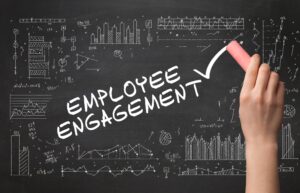
Empathy: The Crucial Social Skill for the Future
Empathy is the foundation of all social skills. At its core, it’s the ability to discern what another person is thinking and feeling, as well

Empathy is the foundation of all social skills. At its core, it’s the ability to discern what another person is thinking and feeling, as well

Social skills at work are critical for teams. According to Fortune Magazine Senior Editor Geoff Colvin in Humans Are Underrated: What High Achievers Know That

Given the financial and societal impact of global business, there’s an urgent need to understand leadership personality. If we fail to appreciate how leaders’ personalities

I’ve been discussing ways to voice a complaint at work so that you get heard and changes get made. For sure, no one likes to

What would it be like to work in self managing organizations? Some forward-looking companies are now using self managing principles to organize work with stellar

I’ve noticed that when we’re having conversations at work, many of us confuse empathy with sympathy. Sympathy is feeling for a person. It often involves

I’ve been writing about the value of knowing your strengths at work so you can get more out of your career. If you haven’t taken
Workplace Mediation Early intervention is especially appropriate when dealing with workplace conflict and disagreement. There are always misunderstandings, disagreements, discord and debates in organizations. They

An organization’s health is only as sound as its leader’s decisions. Some companies prosper from wise leadership directions, while others struggle after flawed choices—choices that

How a leader responds to adversity reveals how effective that leader truly is. Reactions to setbacks or crises not only test leadership character but define

Business is an active, demanding endeavor. Only those who consistently apply themselves succeed. Organizations that thrive require leaders who actively dream, plan, engage, solve, pursue,

Surveys and studies indicate global job dissatisfaction is at a two-decade high. Disengaged employees account for nearly 70 percent of the workforce, which significantly affects







